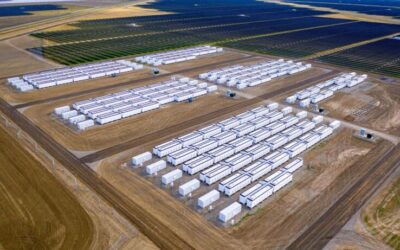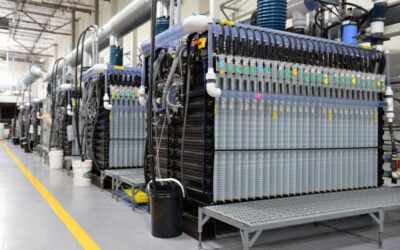
Lyten’s deal to acquire and recommence operations of European battery firm Northvolt out of bankruptcy has winners and losers, but some of the challenges that led to its demise have already been solved.
Those were some of the key takeaways from a press conference held today (8 August), in which Lyten and Northvolt executives, government ministers and bankruptcy trustees discussed the significance of the bankruptcy and Lyten’s takeover.
The press conference came a day after Lyten, a US-based lithum sulfur battery tech company, announced it had acquired Northvolt’s lithium-ion gigafactories in Sweden and Germany, following its acquisition of the Poland-based battery energy storage system (BESS) assembly business a month earlier.
Northvolt: the biggest bankruptcy in Swedish history, amidst a challenging geopolitical climate
“Northvolt had SEK 80 billion (US$8.3 billion) in debt, and 5,000 employees, making it the biggest bankruptcy in Swedish history. It’s rare to have geopolitics involved a bankruptcy in Sweden, but it’s the case in this one,” said trustee Mikael Kubu, who was responsible for Northvolt during bankruptcy.
Try Premium for just $1
- Full premium access for the first month at only $1
- Converts to an annual rate after 30 days unless cancelled
- Cancel anytime during the trial period
Premium Benefits
- Expert industry analysis and interviews
- Digital access to PV Tech Power journal
- Exclusive event discounts
Or get the full Premium subscription right away
Or continue reading this article for free
“This is an achievement, but not for the creditors. They will lose a lot of money,” he added.
He also highlighted that it was rare for geopolitics to be involved in a bankruptcy case in Sweden like in this case. The re-election of Donald Trump in the US has raised trade barriers and tensions globally, amidst a more long-term political push in the US and Europe to reduce supply chain dependence on China.
Sweden’s minister for energy and the minister for business and industry Ebba Busch, joining via video link, also emphasised the context in which the takeover has happened.
“This takes place in challenging times. We live in a more stressful geopolitical tension than maybe any history of mankind. Those are not words I say lightly,” she said.
“This is a win for transatlantic relations and strong value chains, in these dark times. We need hope in these times and this is a good example, though we have a long way to go.”
Lyten’s approach to Northvolt
After echoing those sentiments on the significance of the takeover, Lyten CEO Dan Cook was asked by a journalist how it would both fund the takeover but also succeed where Northvolt had failed.
Addressing the first part of the question, Cook said: “We have a good track record of raising capital. Our private investors give us a strategic weapon, many have invested in us three to four times over. Going forward, we are also expanding our investor base, in Sweden and other parts of the world.”
However, Northvolt had no challenges in raising capital itself, raising as much as US$13 billion in debt and equity over its eight years of operation, so Cook’s response to the second part is probably more noteworthy.
“As far as what we’ll do that’s different? I’ve been asked this many times,” Cook said.
“The people who are there today are some of the most dedicated in the industry. They have solved a lot of the problems that got Northvolt into the current situation. Focus, execution and determination, and that has brought battery yields into the 90% range. Before, the yields were much lower.”
“They haven’t solved all the problems, but they have solved big ones. That’s given us the confidence that this is a good investment to make.”
Yields are a key point. Lithium-ion battery production is complex, and low yields leading to high scrap rates can be a death knell for a gigafactory. Northvolt’s scrap rates (the opposite of yield) were as high as 50% sometimes, possibly even higher, according to some industry sources.
COO of Northvolt Mattias Arleth, who had operational responsibility during the bankruptcy process, added: “We’ve produced 30,000 battery cells a week at Northvolt Ett with only 800 people recently, with very little scrap.”
Cook acknowledged that Lyten would also make mistakes and there were challenges in scaling its lithium sulfur tech, but thee firm has a good foundation to build on with this deal.
Energy-Storage.news will next week publish a longer analysis piece with more comments from Cook as well as from an interview with Lyten sustainability and chief business officer Keith Norman about its plans specifically with the Poland-based BESS division, which took place between the two announcements.





